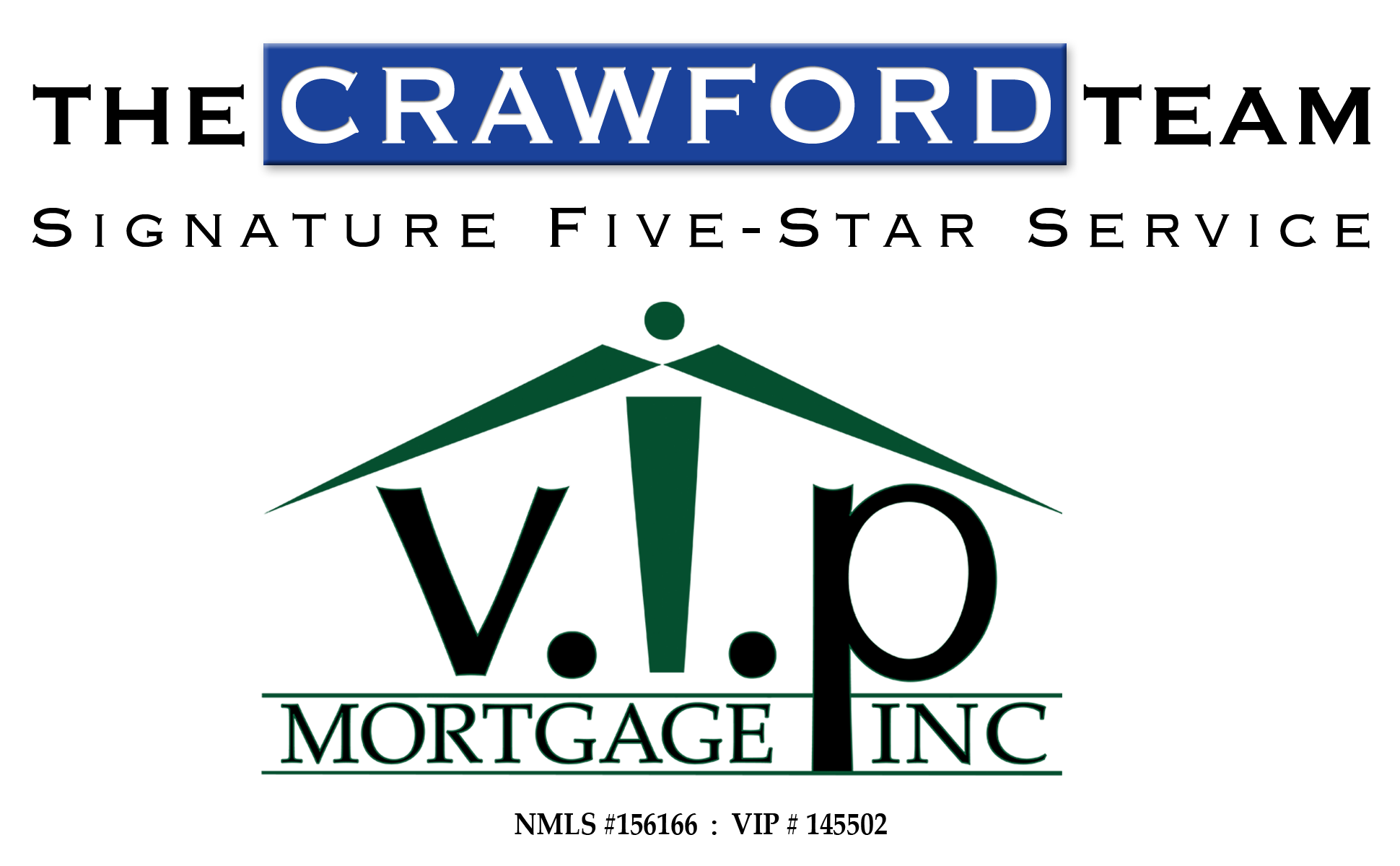| Lenders, if you need your contact information updated below please email with the information you need corrected. Please also include whatever you need to be within legal and regulatory compliance with your company and industry. |
 |
Stuart Crawford
Branch Manager / Senior Loan Officer
(602) 710-8975 phone
(480) 776-2954 office
(480) 302-8560 fax
(contact) VIP Mortgage is a direct lender
|
 |
V.I.P Mortgage Inc
4900 N Scottsdale Rd Suite 6000,
Scottsdale AZ 85251 |
| National license 156166 AZ License # 0911271 - NM license # 156166 |
|
|
 |
|

12409 W Indian School Rd #C301
Avondale AZ 85392
(623) 935-0200
allwestcapital@msn.com |
Mei Lan Kays
Loan Officer |
All West Capital Home Loans NMLS 143584 - License # MB-0907098 |
| Mei Lan Kays NMLS 151462 |
|
|
 |
(602) 792-9061 phone
(602) 445-9953 fax
(website)
NMLS #334571
AZ License #0916143
|
 AmeriFirst Financial, Inc. AmeriFirst Financial, Inc.
14350 N 87th St Suite 310
Scottsdale AZ 85260
(480) 999-3048 |
Cindy Hallas
Senior Mortgage Consultant |
AmeriFirst Financial NMLS 145368 - AZBK0013635 |
| AmeriFirst Financial
is a direct lender |
|
|
 |
Greg Gale
Senior Loan Officer
The Gale Team
NMLS 193428
Team (480) 626-2282
Cell (602) 743-4679
Fax (480) 389-2549
(email) |
Nova Home Loans
8888 E Raintree Dr, Suite #250
Scottsdale, AZ 85260
BK 0902429
|
|
 |
Rob Colvin
Loan Expert
(480) 577-7277 Cell
(800) 520-5626 x544
(email)
NMLS 220373
AZ LO 0913997 |
RightStart Mortgage NMLS #35960
|
|
|

Pinnacle Capital Mortgage Corporation
NMLS 81395 -
AZ-BK-910890
|
J.D. Doolin - Mortgage Banker | CMPS | NMLS 249427
(480) 694-2566 cell ---
(602) 224-3091 fax - MLO 0912746 |
|

|
Kirk J. Howard
Branch Manager | Sr Loan Officer
(480) 570-0340 mobile
(480) 442-8834 direct
(480) 719-8808 fax
(email) NMLS:326442 | AZ: LO-915618 |
|
| Alterra Home Loans 3303 E Baseline Rd #5-109
Gilbert, AZ 85234 |
"17 years Mortgage Experience” The mortgage business is personal,
every loan, every time.
Alterra Home Loans is a division of Venta Financial Group |
|
|
|
Mary Liebl
ShelterMortgage, LLC
25+ Years of Professional
and Ethical Service
(623) 465-4697 direct
(800) 497-8861 efax
(email) |

15333 N Pima Rd, Suite 250
Scottsdale, AZ 85260 (map) |
|
|
Andrea Marcussen
Mortgage Loan Consultant
(602) 576-5644 cell
(602) 277-3800 x25 Ofc
(602) 631-9788 fax
(email) BK 0910057 |

American Financial Lending, Inc.
20860 N. Tatum Blvd. #160
Phoenix, AZ 85050 (map) |
|
 |
Jose Martinez
Mortgage Loan Officer
(480) 650-9004 cell
(480) 323-2115 fax
(email)
|
|
 |
US Bank 17851 N 85th St. #205
Scottsdale AZ 85255 |
|
|
|
Kathy Morrow (email)
Branch Manager /
Loan Specialist
(480) 363-8901 cell
(480) 383-6141 fax |
 |
CNN Mortgage, Inc
2151 E. Broadway Rd. Suite 210
Tempe, AZ 85282 (map) |
|
 |
Stan Van Dyk
Sr. Mortgage Advisor
(480) 314-1025 office
(480) 516-4364 cell
(888) 341-3802 toll free
(480) 240-1316 fax
(email) |
 Cash Funding Options, LLC
Commercial - Residential - Construction Loans
Cash Funding Options, LLC
Commercial - Residential - Construction Loans
4625 S Lakeshore Dr. Tempe, AZ 85282 (map) |
|
|
Downloadable Standard Loan Applications:
Print first: Fax Cover Sheet
Uniform Residential Loan Application
Download direct from Fannie Mae
Usable for Conventional loans, FHA, or VA
(Download, Complete, and
Fax to your Lender of choice)
|
A home is one of the biggest purchases you`ll make in your life. It`s also a purchase that depends heavily on your credit score. Lenders rely on this three-digit score to determine your creditworthiness as well as the interest rate you`ll pay for the amount of money you want to borrow. For those interested in buying their first home, having a poor credit score often serves as a major stumbling block. A poor credit score raises the costs of borrowing money, causing you to pay thousands more in interest, fees and other related costs.
People often assume that a bad credit score is the end result of financial irresponsibility. However, unexpected medical bills, emergency expenses and other unpredictable life events can set off a chain of events that result in a battered credit rating. Fortunately, gaining a good credit score once more is not as difficult as you`d think.
The Importance of DTI
The term, "debt-to-income ratio" or "DTI" is something that you`ll become familiar with as you work to improve your credit score. Specifically, it`s the percentage of your monthly gross income that goes toward paying debts, fees and insurance premiums. When purchasing a home, most lenders will look at your front-end ratio, indicating the percentage of your income that goes towards housing costs. This often includes the mortgage principal and interest, along with the mortgage insurance and hazard insurance premiums, property taxes and any homeowners` association dues (only required in an HOA community).
Debt-to-income ratios are often expressed as "x/y," where "x" represents the amount of gross income allowed for housing expenses and "y" represents allowed housing expenses plus recurring debt. To qualify for a loan, most lenders require a debt-to-income ratio of 28/36. FHA loans require a DTI of 31/43 while VA loans require a flat DTI of 41.
Boosting Your Credit Score
Acquiring credit reports from the three major credit reporting agencies should be the first step to improving your credit score. Not only will you know where you currently stand in regard to your credit score, but you also have the opportunity to seek out and correct possible errors in the report. These errors often include:
- Paid off debts that still show as outstanding
Old debts that remain after the seven-year reporting period
Timely payments that appear as late payments
Accounts that don`t belong to you
The next step involves paying down those balances on credit cards and other lines of credit. Paying down debt isn`t an instant fix for your credit score, but doing so on time each month can help boost your score substantially over a two-month to three-month period. Even a small increase can help nudge you into a lower tier of loan pricing, making home loans more affordable.
If you can`t pay down the balance right away, spreading out credit card balances and transactions across multiple cards is the next best thing. This practice keeps you from hitting your maximum spending limit on one single card, lowering utilization rates while increasing your credit score by small increments.
The one thing you shouldn`t do is close unused accounts, since this negatively impacts your debt-to-income ratio as well as your credit score. It`s a good idea to keep your oldest credit accounts open, as it keeps your credit history established in the eyes of credit bureaus and lenders.
Companies like NationalDebtRelief specialize in improving your debt-to-income ratio and other ways of boosting your credit score, so you can take those first steps toward home ownership. Helpful tools such as their free budget planner worksheets can help you get a better grasp on your finances and set you off on the road to financial security and a new home. |
Purchasing A Home, and Avoiding Foreclosure
|
Financing Resources, Mortgage Knowledge Base, and Informative Links:
The Arizona Corporation Commission
Responsible for final decisions on granting or denying utility rate adjustments, enforcing transportation safety and public service requirements
Arizona Department of Financial Institutions
Toll-free: (800) 544-0708
Regulates and supervises the financial institutions and enterprises of Arizona.
Better Business Bureau
Better Business Bureaus can alert you to complaints against companies in your area.
The Federal Reserve
The Federal Reserve System (also the Federal Reserve; informally The Fed) is the central banking system of the United States.
RESPA - Real Estate Settlement Procedures Act
RESPA covers loans secured with a mortgage placed on a one-to-four family residential property. These include most purchase loans, assumptions, refinances, property improvement loans, and equity lines of credit.
HUD's Office of RESPA and Interstate Land Sales is responsible for enforcing RESPA.
|
|
Each of the lenders on this site are Equal Opportunity Lenders.
 |

Shopping for Your Home Loan
HUD's Settlement Cost Booklet
Real Estate Settlement Procedures Act (RESPA) requires lenders and mortgage brokers to give you this booklet within three days of applying for a mortgage loan. RESPA is a federal law that helps protect consumers from unfair practices by settlement service providers during the home-buying and loan process. |
Department of
Consumer and Regulatory Affairs
Regulates businesses, issues business and alcoholic beverage licenses, and regulates historic preservation, rental housing and real estate.
FHEO - Office of
Fair Housing and Equal Opportunity
The Office of Fair Housing and Equal Opportunity (FHEO) administers and enforces federal laws and establishes policies that make sure all Americans have equal access to the housing of their choice.
HUD - U.S. Department of
Housing and Urban Development
Housing news and information about home owning, buying, renting and financing; community data; pages about how to work with HUD
FHA - Loan Refinance and New
FHA Home Loans and Mortgages
FHA refinance and new FHA loan information: FHA loans let you buy or refinance with a low down payment, backed by HUD.
Compared to conventional loans, Federal Housing Administration loans have more lenient requirements for applicants to fulfill. For more than 75 years, the FHA has insured millions of loans to help Americans finance their homes. In fact, last year the federal government financed about 28 percent of home loans.
Even though qualifying for FHA loans is easier, not everybody meets the requirements. Those who do will find favorable terms, and for those who don’t other home-financing options are available.
Qualifying for FHA loans
When people apply for loans, the FHA considers a number of things, most importantly:
-The percentage of monthly income spent on the mortgage payment. Although borrowers may be able to stretch this amount to 35 percent of monthly income, the FHA recommends 29 percent.
-Credit history. A score of about 620 is the minimum, but those with no credit history may still qualify. If major credit problems arose because of serious reasons, such as illness or a job transfer, the FHA will likely excuse it. Borrowers with a history of foreclosure or bankruptcy must allow three years and two years from discharge, respectively.
-Debt-to-income ratio. Including the mortgage payment, the FHA allows 41 percent of a borrowers’ monthly income to go toward outstanding debts.
More benefits of FHA loans
-Conventional loans expect borrowers to have savings, but FHA loans do not necessitate savings or checking accounts.
-If combined with other loans, the down payment can be 0 percent. When borrowers need to put money down, it’s acceptable to get money from non-profits or family to cover the cost.
-FHA loans’ interest rates change within 0.125 percent of conventional loans, if at all.
-With the government’s insurance of the loans, lenders are more comfortable issuing them.
Alternatives to FHA loans
Since not everybody can get FHA loans, other financing options exist for prospective homeowners. Like any loan program, these options come with different prerequisites.
-The U.S. Department of Agriculture insures up to 100 percent of a loan, and tends to help low-income families in rural areas.
-VA loans are available to veterans and active-duty military members. Like USDA loans, VA loans are one of the few no-money-down options on the market.
-Instead of buying a home, renting may be a better option. Apartment owners who get financial assistance from the Department of Housing and Urban Development offer lower rent to tenants.
To determine if your condo complex is compliant with the FHA condominium guidelines & rules, please click this link.
|
|
|
VA - U.S. Department of Veterans Affairs
Learn about the VA loan program -- VA Loans and VA ARM loans for veterans and military personnel.
Arizona is home to more than 560,000 veterans, thanks in part to its terrestrial beauty and four military installations. Veterans nationwide, including the Grand Canyon State, are taking notice of the overwhelming benefits in the Veterans Administration home loan program.
More than 6,300 home loans in Arizona are guaranteed by VA at a total value of $1.4 billion. Last fiscal year, VA covered about $68 billion in single-family loans. Lenders issue VA loans, while VA simply insures about one quarter of the loan against unlikely borrowers’ defaults. Because of this insurance, lenders are more than willing to help veterans get the loan they deserve.
Unfortunately, of the 24 million veterans less than 10 percent has utilized this program. That’s an astounding figure considering the unrivaled advantages of VA loans. In Arizona, veterans can pay no money down for a loan of up to $417,000. Borrowers also have the chance to negotiate interest rates, which are sure to be lower than those of conventional loans. Refinancing VA loans, either with a VA streamline or cash-out option, lets borrowers lower their interest rates. There are even more gains, such as:
-Ability to prepay a loan without penalty
-Borrowers in default get extensive assistance to avoid foreclosure
-Sellers can pay up to 6 percent of closing costs
-No private monthly mortgage insurance
Clearly, our nation’s heroes took notice of these upsides, causing VA loan volume to spike 80 percent last year. Renowned for its natural beauty, Arizona is surely a place for veterans to settle post-duty. Those who may qualify are usually in one of three categories:
-Military members who’ve served 181 days on active duty or three months during war time.
-People who have spent at least a half-dozen years in the National Guard or Reserves.
-Spouses of those killed in the line of duty.
How does the VA help? No Money Down. VA Loans do not require money down. Lower Interest Rates. A VA loan could potentially save you $75 each month on mortgage payments. Why? Because lenders will offer great interest rates since the Department of Veteran Affairs secures the loan. No Private Mortgage Insurance (PMI). With conventional loans, mortgage insurance can cost an extra $100 to $700 per month! Steering clear of that is one of the biggest advantages of the VA program.
Receive $417,000 or More on a VA Loan
Although only $417,000 is financed with the VA loan program, larger amounts up to $729,000 are sometimes available. Once again, if your prospective home does cost a little bit more than you bargained for, VA loans allow veterans to use gifted or borrowed funds. Qualifying A lending counselor can help a service member gather all the necessary documentation needed for a VA loan. The service member must be able to prove that they served in the military for 90 days during wartime and 181 days during a time of peace. He or she must have been honorably discharged.
If you do have bad credit, a VA loan counselor can help you work your way back up to financial health without you having to put your home buying dreams on hold.
VA loans have helped more than 18 million veterans become homeowners since 1944. Today, these flexible loans are more popular than ever and headed for a huge year after loan volumes surged a whopping 80 percent in 2009.
There are some new changes headed for government-backed loans in 2010 for both homebuyers and brokers. These changes are part of a government effort to increase protections for consumers.
About 80 percent of VA borrowers could not have qualified for a conventional loan. And these loans offer more financial benefits and incentives than almost any other on the market. Among those benefits are:
-No private monthly mortgage insurance
-No penalties for loan pre-payment
-Higher debt-to-income ratio allowed than for most conventional loans
-Sellers can pay up to 6 percent of closing costs and concessions.
But the program’s No. 1 benefit is that military buyers in most parts of the country can purchase a home worth up to $417,000 without putting down a single dollar. That figure is actually higher in more expensive parts of the nation.
To read more about VA Mortgage Guidelines, visit https://homeloans.va.gov/. |
|






















